Hi Jackie! We're so happy to have you here at Voice. Can you tell us a little bit about yourself and the work that you do?
I am a writer/performer. I write plays, solo shows, stand up comedy and poetry. I tour solo shows and do talks on diversity, inclusion and social engagement. I’m really passionate about people who have been vilified or failed by society finding their voices and being able to express themselves in a fully accepting environment, self-esteem is everything and it’s hard to value yourself when society doesn’t value you.
I’m currently working on a sitcom with Hat Trick productions who did Father Ted.
People are a bit snobby about comedy when it comes to wanting to change the world, but I know that you can change minds while you’re being funny.
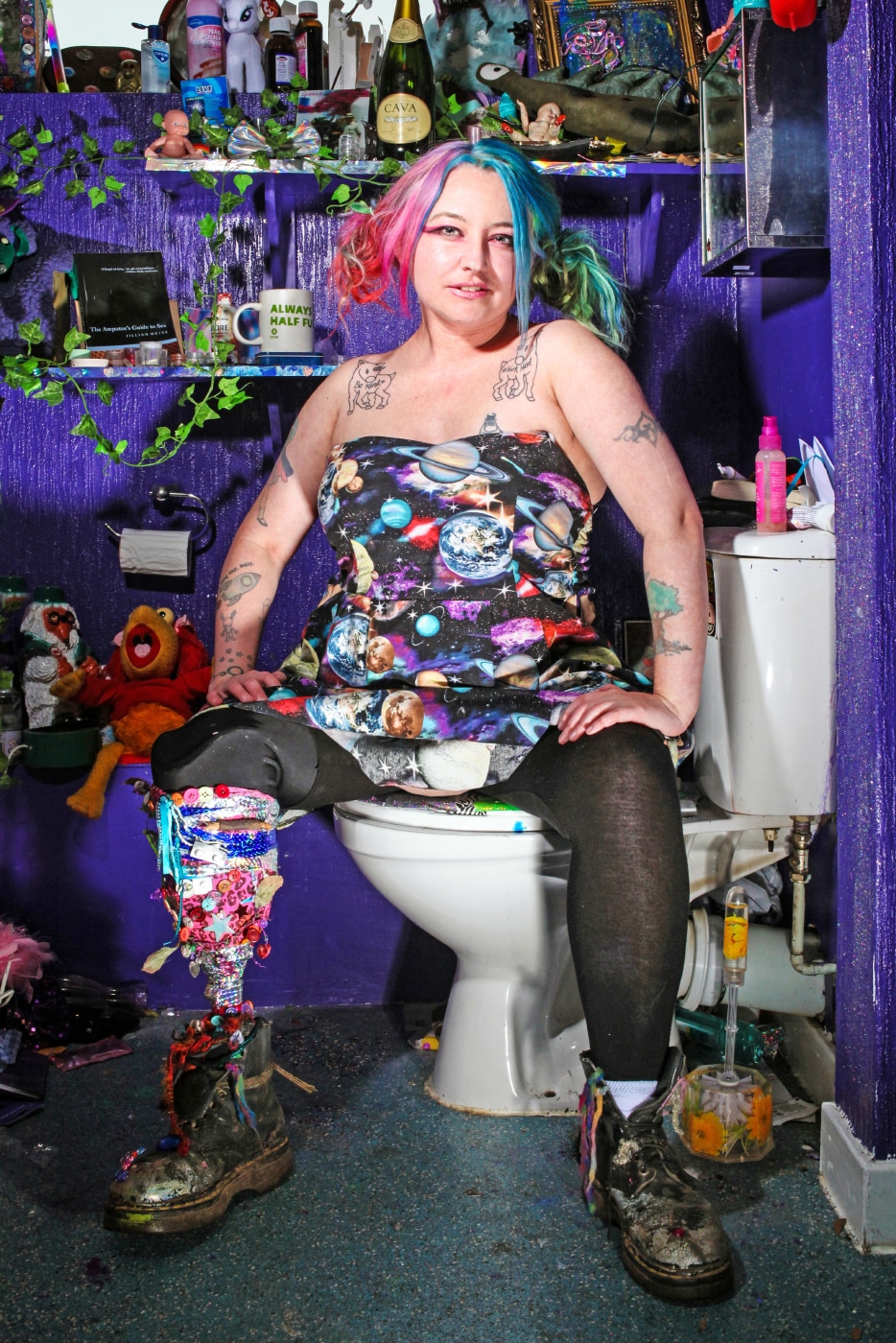 I’m a working-class queer amputee with an autoimmune disorder and a holographic false leg. I am down to earth and odd. I like usurping audience expectations around class, disability, gender and sexuality. I’d recommend you do my job if you love expressing yourself, are angry at society, have a unique world view and thrive on uncertainty.
I’m a working-class queer amputee with an autoimmune disorder and a holographic false leg. I am down to earth and odd. I like usurping audience expectations around class, disability, gender and sexuality. I’d recommend you do my job if you love expressing yourself, are angry at society, have a unique world view and thrive on uncertainty.
What's the hardest part of your job?
In terms of money, you don’t have security, you don’t know what money you will have from year to year, the starting fee for a play under 60 mins is around 7k, you have to put yourself out there and raise your profile, but you must be wary of burning out.
Tell us a bit about the project you're currently working on and why you think using arts for activism is important?
I’m on tour right now with my solo show ‘This is not a Safe Space’ which I created because I’m sick of the way society ‘others’ people on the breadline and makes a mockery out of people on shows like Benefits street, it’s disgusting, imagine if they made a show laughing at homeless people?
Classism is rife, it’s everywhere, I suffer microaggressions every day for being working class. Class has got in my way much more than being queer, or using a wheelchair, or being female. But we don’t talk about it. In the arts, working class people drag up as middle class to get by.
Disabled people are othered (made out to be ‘not like normal people’) by pretending we are superhuman Paralympians (it gets so silly sometimes I think the media think we can fly), I am not going to climb a mountain with Prince Harry to be anyone’s inspiration porn. Alternatively, we are circus freaks on The Undateables.
What made you decide to make this project?
Theatre doesn’t reflect the life experience of council estates and disabled people. I interviewed 80 people on disability benefits and I play the audio of the voices in the show so that you can hear all the hiccups, anxiety and stumbling bravado that everyone can relate to. The theatre is excellent for creating empathy and understanding, humour helps, making issues from cold stark statistics into 3D humans means you can get audiences to relate, empathise and care, that changes attitudes and attitude towards vilified people is huge.
What do you think the challenges are for using arts as a way to raise awareness of issues or as a form of activism?
The biggest obstacle for me is getting people into theatres – the arts need to get vastly better at access, integrate BSL, AVD, have hearing loops and relaxed performances, or even better integrate all of that into one show that then caters for everyone, all the time.
I am enthusiastic about getting working class people into theatres, I go out into hostels and do shows in prisons and psychiatric wards, these are what the arts call ‘hard to reach people’ but they’re not hard to reach, the theatre is hard to reach for them!
I go into communities and show people that being in a room with real people, spectacle and interaction is much more affecting and nourishing than watching something on youtube on your phone. I think the latter makes people crazier and the former sorts us out.
Do you have any top tips for young people looking to create their own arts project as a form of activism?
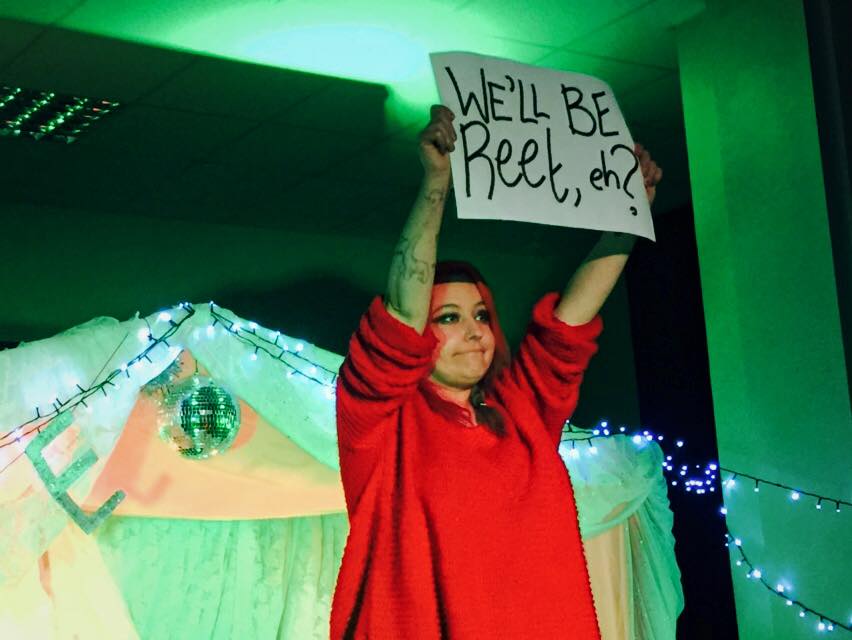 If you want to get into this work, do this exercise right now, use a pen and paper, just do it don’t quibble:
If you want to get into this work, do this exercise right now, use a pen and paper, just do it don’t quibble:
Q1) Set the timer on your phone for 3 minutes, write none stop starting with the words ‘This what I never get to say…’, don’t worry about making sense, spelling, grammar, or doing it right, the only rule is to keep your pen moving, you can write ‘I don’t know what to write’ for 3 minutes if needs be.
Q2) Write ten lines, each one starting with “I come from”, again, don’t try to make traditional sense. What has influenced your life? The big and the small, include reference to the 5 senses and give it a title with a colour in.
Well done! Now, keep writing, every day. Read poetry, watch theatre, amass yourself a heap of influences, collect interesting quotes, articles, pictures, make a shoebox full of things that you love, explore who you are and what you have to say. Find your voice, it might take ages. Graft. Don’t expect to make money until you have found your voice. Edit. Find out about local opportunities, anywhere you can perform your writing, become a fixture at local theatres, contact people, be polite and pushy, make friends with likeminded souls, write reams, go to workshops, you have to write 9 pages of rubbish to get to page 10 of gold, do anything that helps you to keep excited about what you are doing.
Write when you’re happy, write when you’re depressed, loads of performers have social anxiety, mental health problems, be stoic and look after yourself, do what you are scared of, amass lots of stage time.
When you’re ready, ask for money, see if anyone wants to be your producer, apply for funding, don’t be afraid to take risks, make mistakes, have high expectations of your audiences – it’s okay if they don’t understand absolutely everything you’re saying, it’s art, there needs to be room for interpretation otherwise you are just explaining things. Feel the applause. Soak it up so that you can use it internally the next time you feel bad. You are a performer – you probably have an inferiority complex that creates a hole that is filled with a superiority complex. That’s okay, it’s normal. Be nice. Keep on going, in the least patronising way, well done, it’s not always easy. Good luck.
More Jacky Hagan:
Find out more about Jackie and her projects by googling her.
At the intersection of disabled and working class - an interview with Jackie Hagan
Want more tips on working in the arts? Head on over to Creative Choices, a website filled to the brim with advice on how to get into the arts.


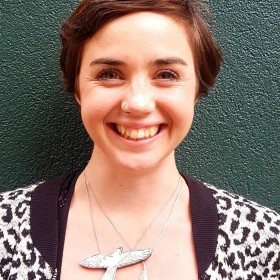
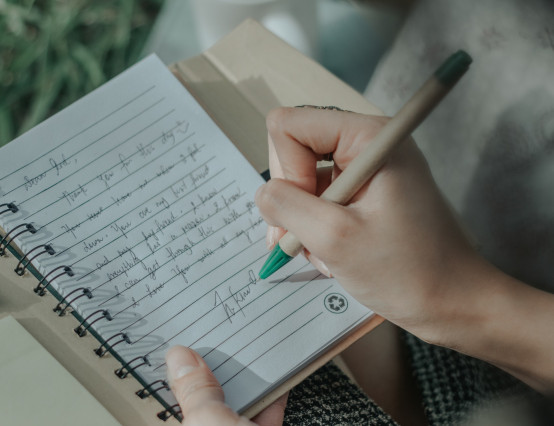
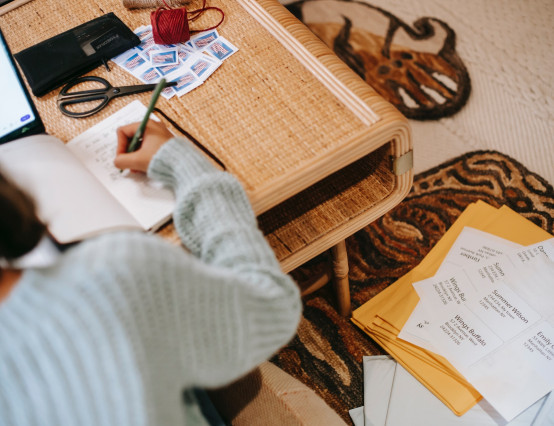
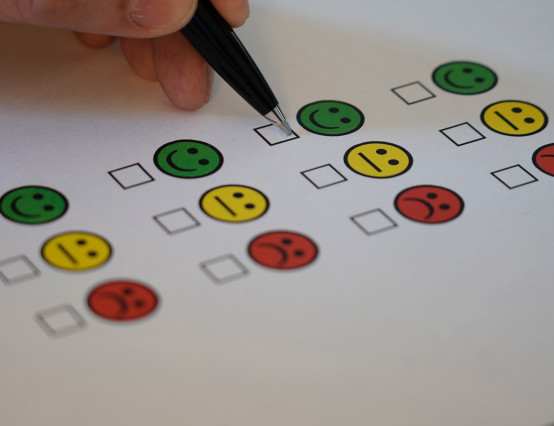
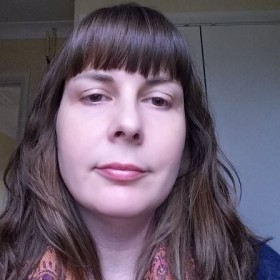



What a really great article to read! So many things that resonate to me as a disabled person, but also I love the down to earth stuff about reaching people. People need to be met in their own comfort zones, where they feel safe and in control. Trying to bring people in your own safe space is not how you share, learn or build real relationships.
Great Article and someone to watch for - I'll keep my open for the sitcom!